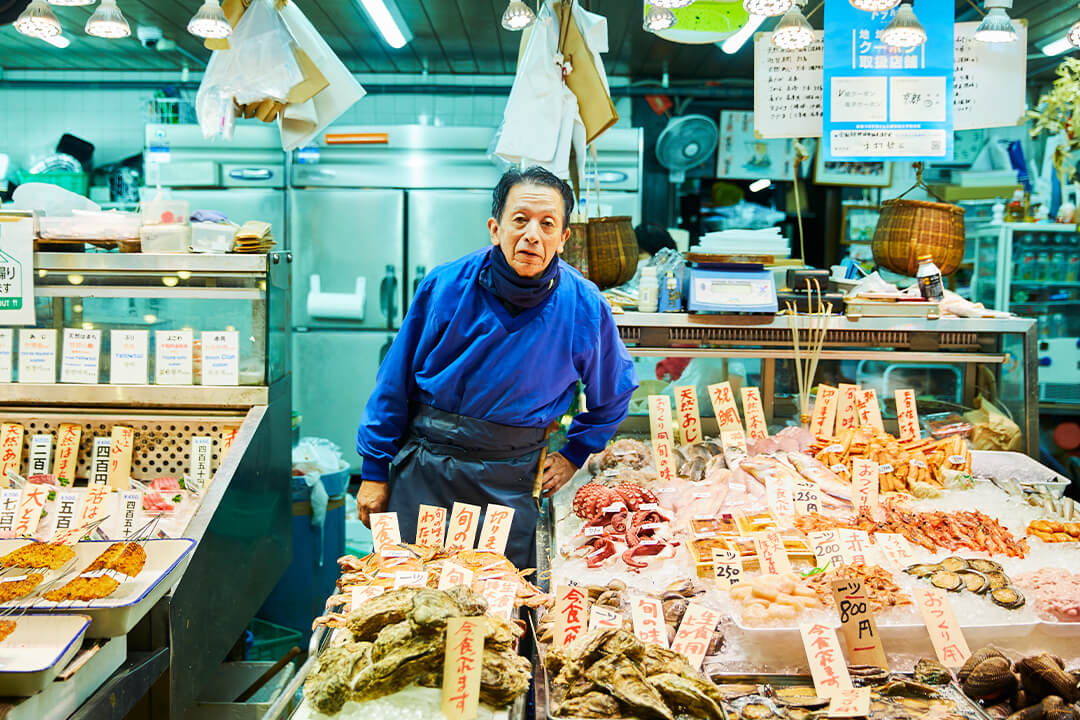All shops
128件Please note that business hours and regular holidays may have changed.
Kyo-shichimi Jintora
We have been selling Yuzu shichimi since 1989 and developed shichimi soft since 1996! Sansho and Yuzu Kosho are purely made in Japan.
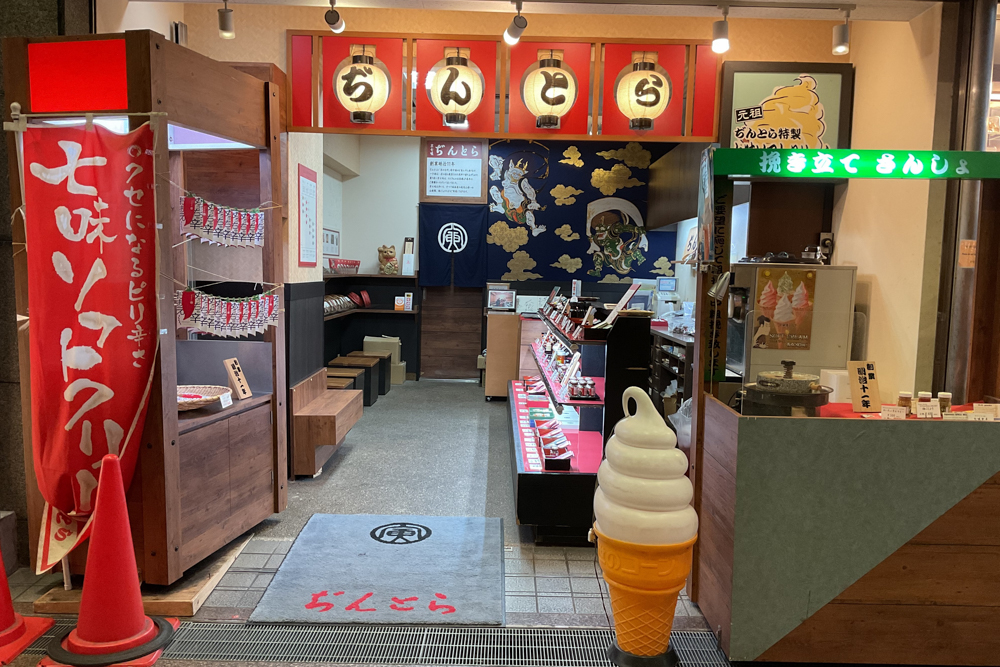
Kyo Tsukimachian West
This shop specializes in an unusual pastry called "Fuku-Daruma Anesu.” "Anesu" is based on the sound of a Portuguese word for baked sweets. It is actually a word that has been used for a long time in Japan, although not many people are familiar with it. The ingredients are flour, sugar, and eggs. The surface is baked to a smooth firmness, and the face of Daruma (a Buddhist saint) and the word "fuku," meaning "good luck," are branded on it. Hence, “Fuku-Daruma Anesu.” The texture is crispy, like a Japanese "bolo" cookie, which also happens to be derived from a Portuguese pastry.
- Japanese sweets
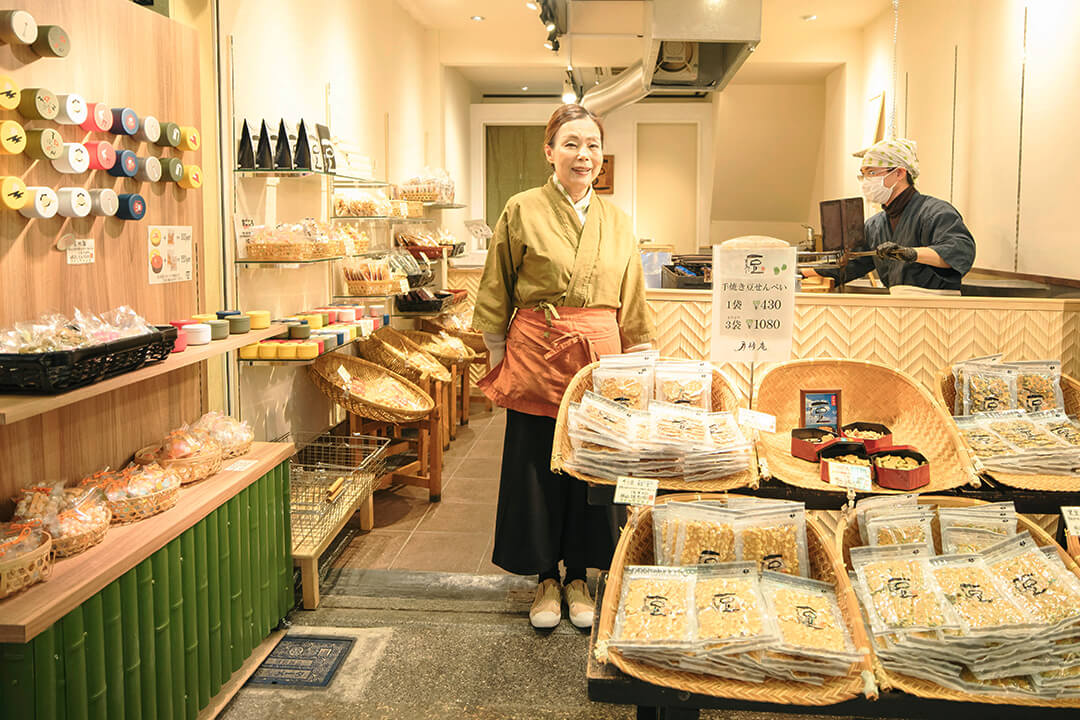
Gyokouchokusou Ryoushigoya
This “Kaisen Don" (seafood rice-bowl) and "Kaisen Yaki" (grilled seafood) restaurant uses the freshest ingredients from all over Japan. They grill and prepare the specialties of fishing ports across the country in a dynamic manner! The restaurant has a large number of seats with plenty of space. Please feel free to go in.
- restaurant
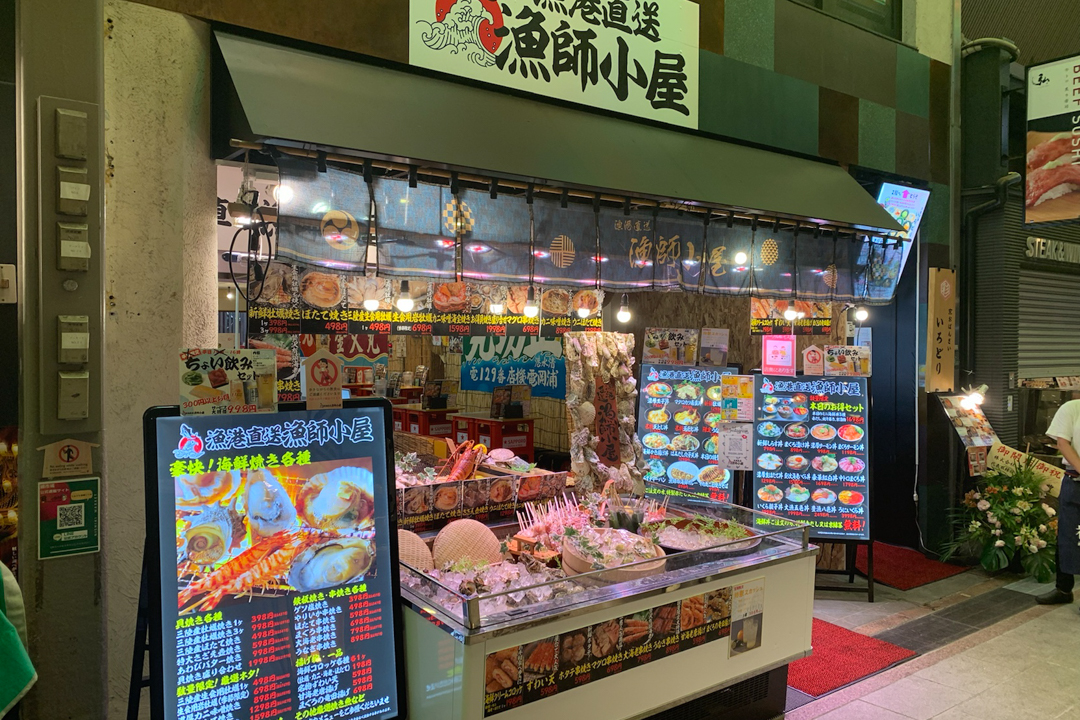
Fuji Shokuhin
The owner says that he often has customers who come and say, "I have a craving for the food I had in the old days." The store is filled with items representative of Kyoto's food culture, such as dried cod and cooked herring. The owner, who values conversation with customers, says, "I want them to buy what they like and arrange them in their own way on dishes and bowls of their preference," and "I don't want them to buy too much."
- tsukudani
- deli
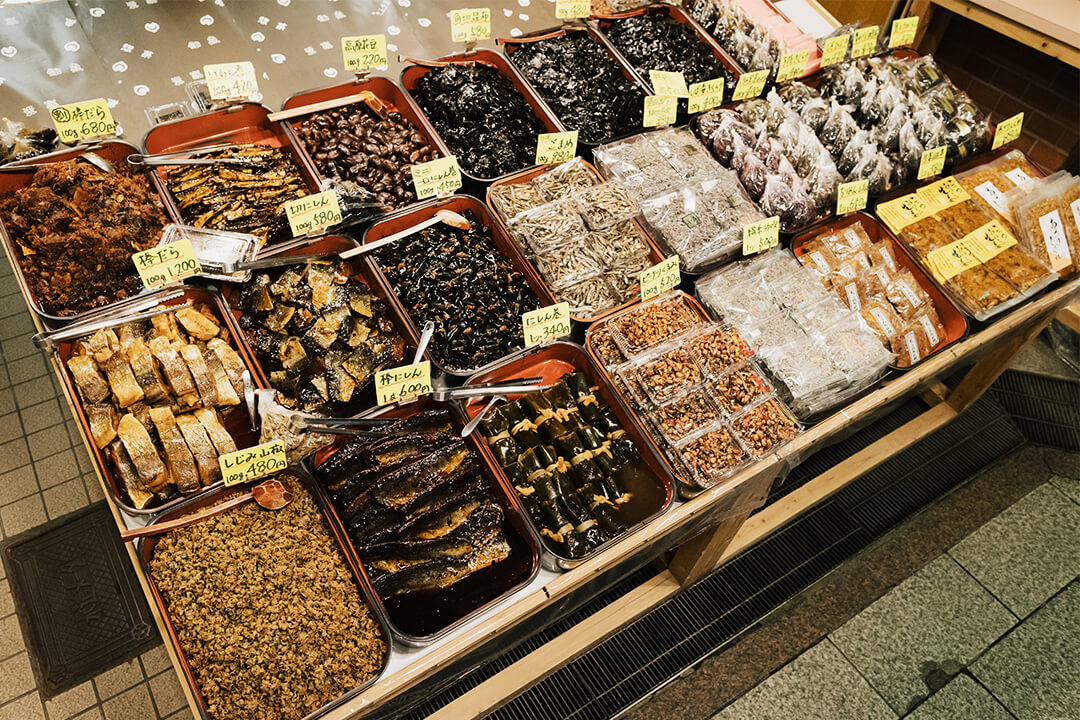
Watahan
Founded in 1897, this shop has a history of over 120 years. Counted from the first owner, Hanshichi Watanabe, the current owner is the fourth generation. The store began as a retailer of fresh fish and now focuses on the preparation, processing, and sales of seafood such as fugu (puffer fish), pike conger eel, and oysters. In addition to small packs of sashimi such as wild sea bream, kampachi (greater amberjack), and blood clams, oysters with shells and deep-fried fugu are also available.
- fresh fish
- processed fish
- deli
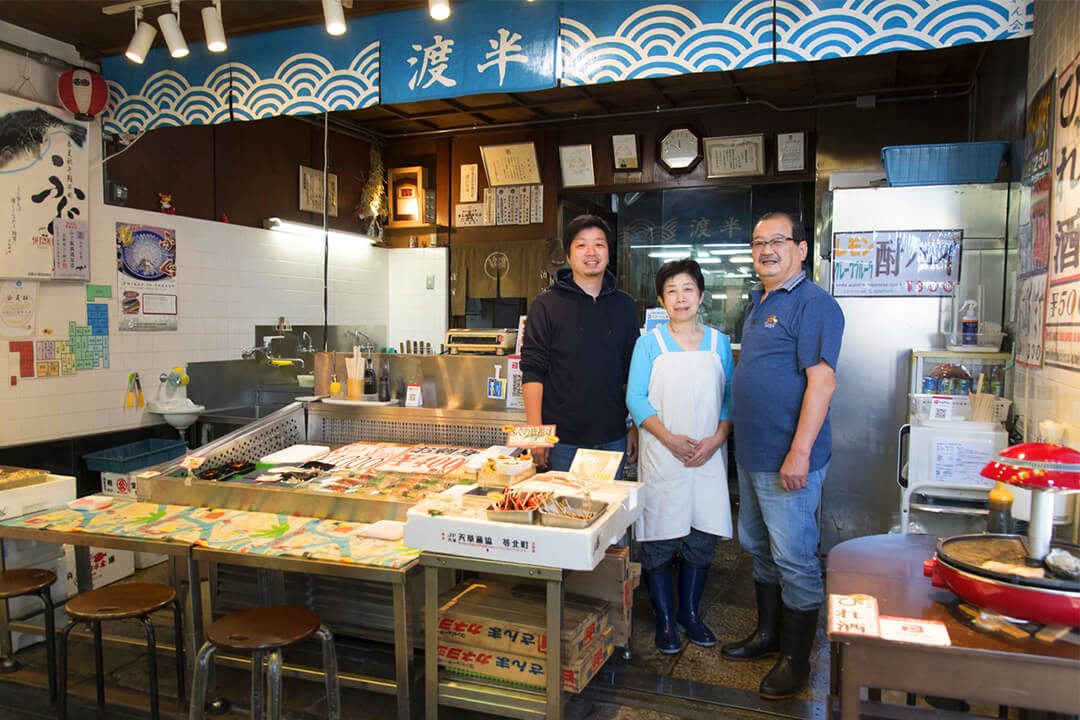
Aritsugu
This shop has a long history dating back to 1560 when it was originally founded as "Swordsmith Fujiwara Aritsugu." In the shop, an impressively wide variety of knives, pots, and other cooking utensils handmade by skilled craftspeople are lined up as if reflecting the long history of the store. It is supported by a wide range of customers, from top chefs of Kyoto cuisine to ordinary households.
- cooking gear
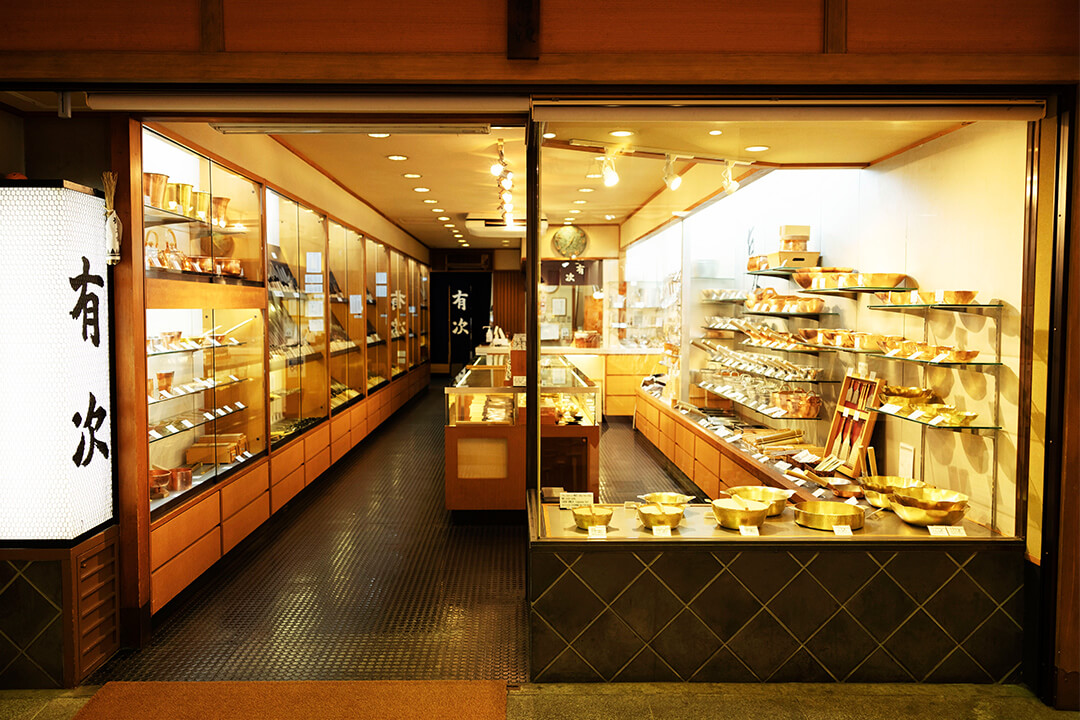
Yamaichi
Founded in the late Edo period (1603-1867), Yamaichi is one of the ten oldest shops in Nishiki Market.
“We continue to serve traditional, delicious, seasonal dishes such as our grilled hamo (pike conger eel), which is made by a special cutting technique using high-quality hamo from the Seto Inland Sea and immediately grilling it with our homemade sauce, and our dried codfish rehydrated in the groundwater of Nishiki Market, keeping the flavors of the good old days,” the owner says.
- dried salted fish
- processed fish
- delicacy
- tsukudani
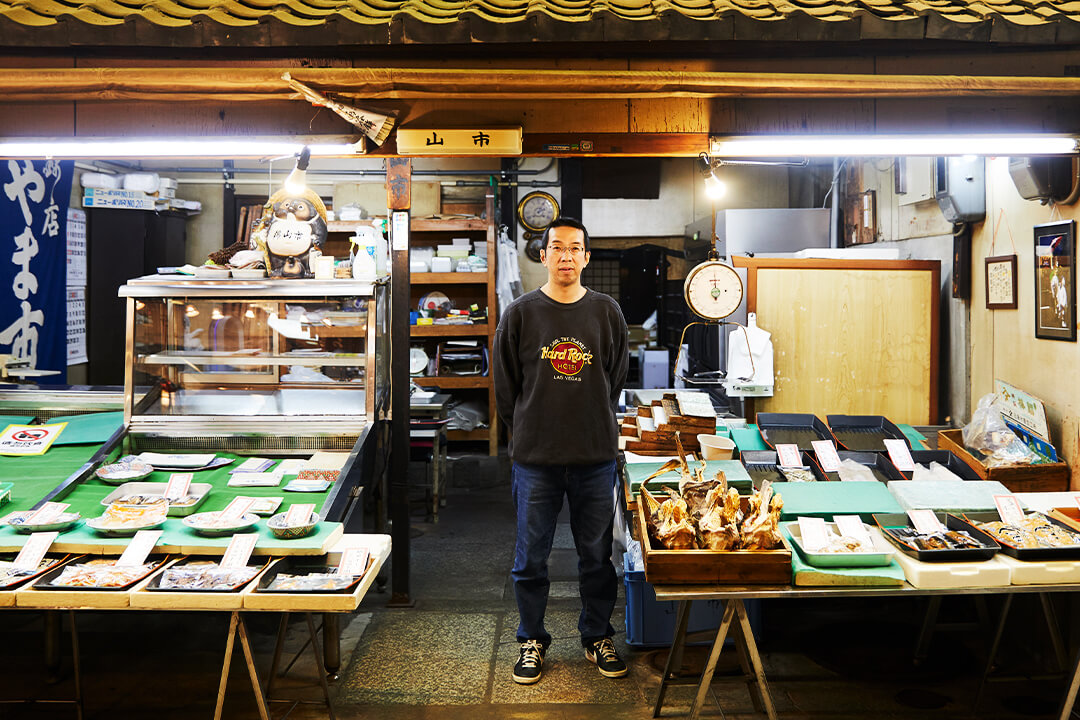
Sugi Honey shop
Honey is a gift of nature. Sugi Honey Shop raises bees in their own apiary in Kumamoto Prefecture and also collects honey from all over Japan. They sell pure rich honey, fruit juice blended with honey, royal jelly, propolis, the New Zealand manuka honey, which has been gaining attention in recent years for its health benefits, and more. Their lineup of honey products are loved by people of all ages.
- Ingredients & Seasonings
- western style sweets
- seasoning
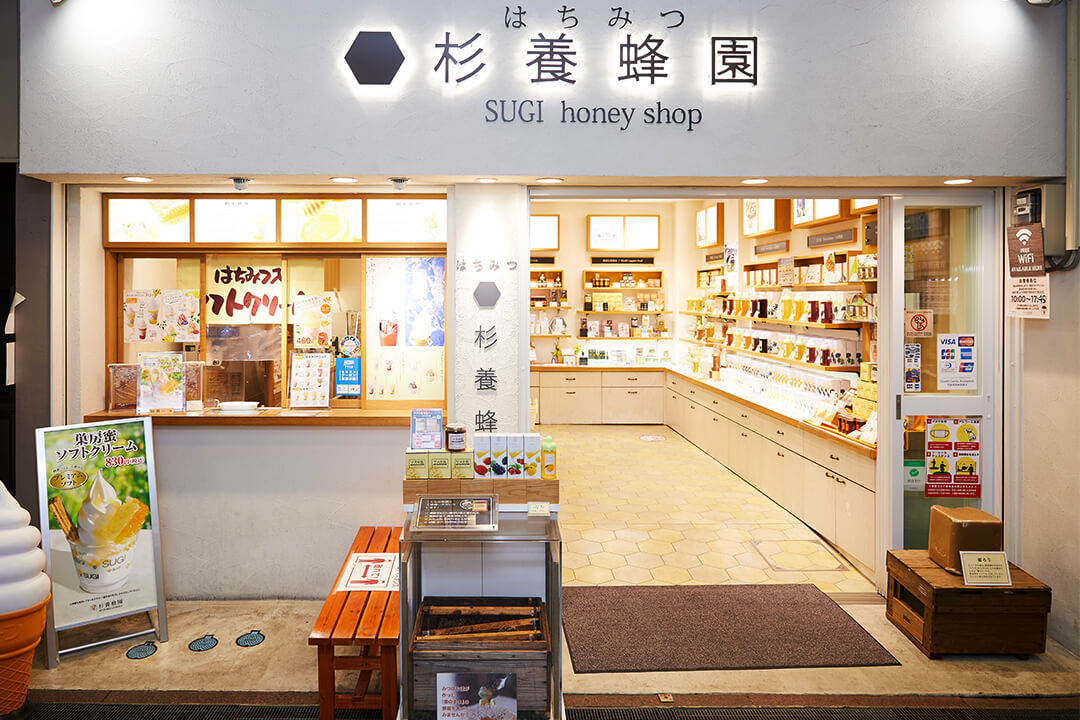
Mori
Mori delivers Kyoto pickles that bring out the natural flavors of the ingredients. This shop not only purchases the ingredients, but also grows them on its own farm in Kameoka, Kyoto. Mori also maintains its traditional method of pickling passed down through generations. ri is committed to making traditional Kyoto pickles, it also focuses on creating pickles that transcend traditional boundaries.
- pickles
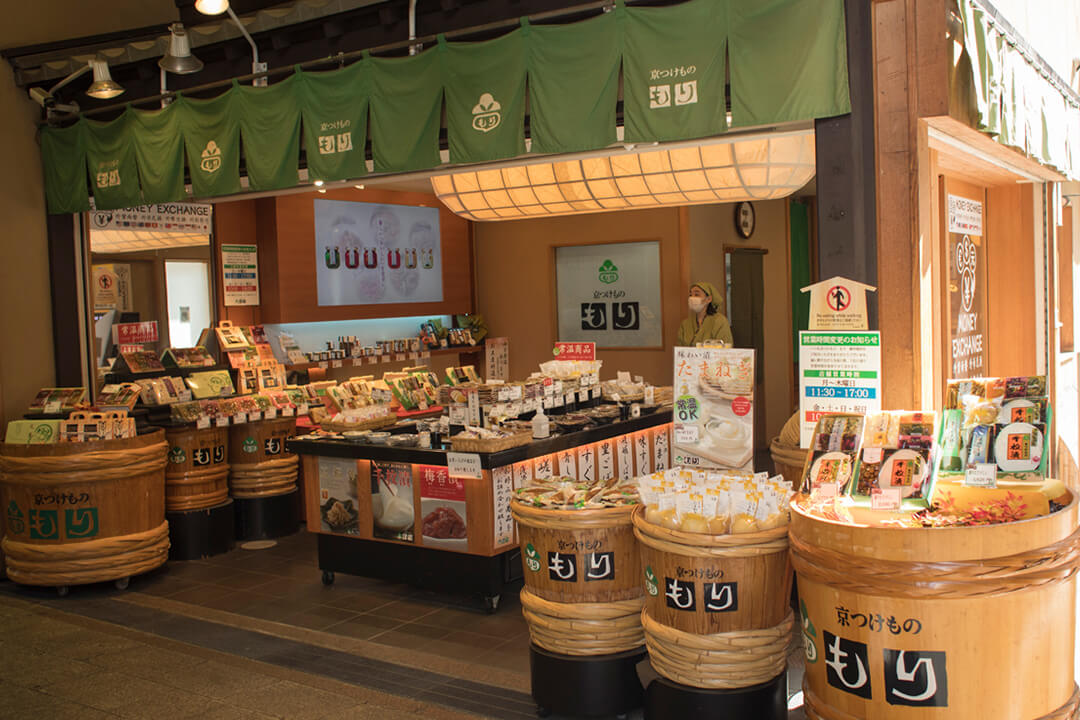
Kimura
The variety and quantity of fish lined up in the shop is a sight to behold, which makes it no surprise that this is one of the oldest stores in Nishiki Market, dating back to the Genna era (1615-1624) in the Edo period. Because they purchase fish in large quantities for wholesale to ryotei (traditional Japanese restaurants) and caterers, the retail price to the general public is also very reasonable. You can enjoy at home the same high-quality fish as those served at ryotei and other high-end restaurants.
- fresh fish
- processed fish
